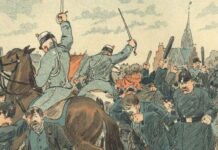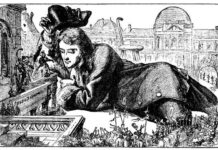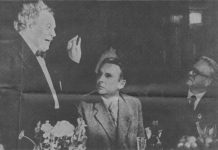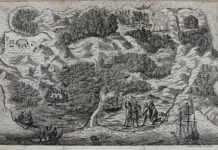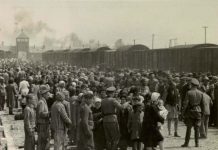
George Orwell (1903-1950) var en engelsk forfatter, socialist og antistalinist, bla. kendt for bøgerne Kammerat Napoleon (Animal Farm), 1984 og Hyldest til Catalonien. George Orwell har i mere end 50 år været omdiskuteret på venstrefløjen, hvad der ikke mindst skyldes både venstrefløjens egen svaghed over for Orwells kritik af den russiske revolutions udvikling og stalinismen i bogen Kammerat Napoleon og højrefløjens flittige brug af Orwell som antitotalitær orakel i den kolde krigs periode.
Indhold
- Forord
- Leksikalt/encyclopedias
- Books / in English
Bøger /på dansk - Artikler på dansk
- Articles in English
- Sites
Forord
George Orwell (1903-1950) var en engelsk forfatter, socialist og antistalinist, bla. kendt for bøgerne Kammerat Napoleon (Animal Farm), 1984 og Hyldest til Catalonien. Fornylig er der kommet en dansk biografi og introduktion til hans forfatterskab: Toni Liversage: George Orwell: en introduktion (Gyldendal, 2000). Toni Liversage har også en kort artikel, “Mellem engagement og udtørring”, i tidsskriftet Salt (nr.1, marts 2000, s.18-20).
George Orwell har i mere end 50 år været omdiskuteret på venstrefløjen, hvad der ikke mindst skyldes både venstrefløjens egen svaghed over for Orwells kritik af den russiske revolutions udvikling og stalinismen i bogen Kammerat Napoleon og højrefløjens flittige brug af Orwell som antitotalitær orakel i den kolde krigs periode. Og da datidens antikommunister fortsætter i dette årtusinde som heksejagere mod “68-åndens totalitarisme”, er der stadig kamp om den politiske arv, som er udtrykt i Orwells bøger og liv.
Da der for et par år siden blev kendt, at Orwell til en bekendt i det britiske efterretningvæsen havde udleveret en privat liste over “kommunistiske medløbere” blev venstrefløjens defensive holdning til Orwell igen understreget.
På overfladen kan det se ud som et livs udvikling fra revolutionær socialist til kold krigs-kriger.
Denne problemstilling er fraværende hos Toni Liversage, men besvares i to nye udgivelser på engelsk – nævnt nedenfor.
Kampen mod højrefløjens forvrængninger, myter og fortielser om Orwells politiske standpunkter kan ikke løses alene ved at (gen)læse hans bøger i dansk oversættelse.
Derfor har vi lavet et udvalg af hovedsagelig engelsksprogede venstrefløjsanalyser, i form af tidsskriftartikler og Netsteder.
For bøger på dansk af og om Orwell, se Toni Liversages litteraturliste (bemærk, at ved en lapsus er hans antistalinistiske bog om den spanske borgerkrig Hyldest til Catalonien (Gyldendal, 1975) ikke med her; men er selvfølgelig omtalt i hendes bog i øvrigt).
Det er denne bog, der er det litterære forlæg til Ken Loachs film Land & Freedom fra 1995, som vi har lavet en emneliste om: Ken Loachs film Land and Freedom (Socialistisk Bibliotek, 2005, revideret 2015).
Jørgen Lund & Bjarne A. Frandsen
Oktober 2000. Revideret april 2018.
Introduction
In June 2003 for the George Orwell centenary we have added new articles and links to this webliography on The George Orwell of the Left.
First edition was made in year 2000 at the time of the publishing and debate around the books by Paul Flewers and John Newsinger.
New edition April 2018.
Se også på Socialistisk Bibliotek:
- Tidslinjen 8. juni 1949 om romanen 1984.
- Tidslinjen 17. august 1945 om romanen Kammerat Napoleon.
- Tidslinjen 25. april 1938 om bogen Hyldest til Catalonien.
- Emnelisten Ken Loachs film Land and Freedom.
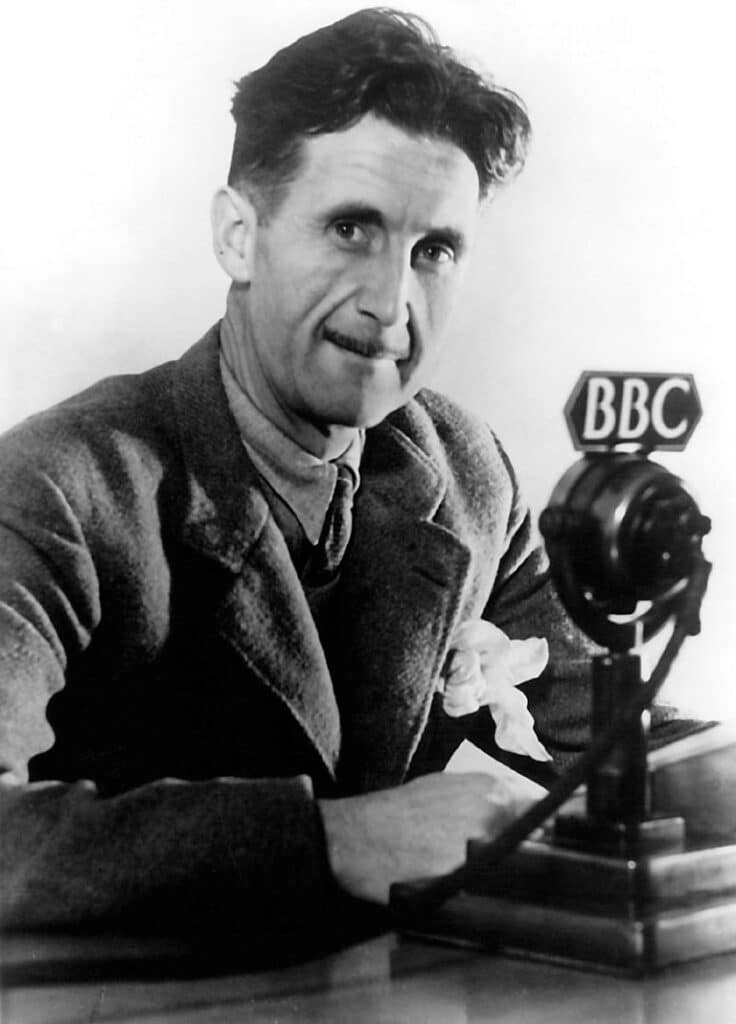
Leksikalt / Encyclopedias
Dansk:
- George Orwell (Wikipedia.dk)
- George Orwell (Denstoredanske)
- George Orwell (Bibliografi.dk: international forfatterbibliografi; online på Internet Archive). Titler og udgaver på dansk af George Orwell.
English:
- George Orwell (Spartacus Schoolnet). Biblography and a few short tasters from his essays; aimed at the school student without the stamina for the whole works.
- George Orwell. Compact biography + Orwell’s list (Wikipedia.org)
- George Orwell (1903-1950) (Marxists Internet Archive). Biography & few works.
Books/In English
In English:
John Newsinger: Hope Lies in the Proles: George Orwell and the Left (Pluto Press, 2018, 186 p.):
Interview with John Newsinger: Orwell and the struggle for socialism (Socialist Review, Issue 434, April 2018) + review by Mark Krantz (Socialist Review, Issue 436, June 2018) + review by Samuel Farber: George Orwell and the Proles (Jacobin, August 21, 2018)
David Smith: George Orwell Illustrated. Illustrated by Mike Mosher (Haymarket Books, 2018, 280 p.)
Review by John Newsinger (Socialist Review, Issue 440, November 2018).
John Rodden (ed.): The Cambridge Companion to George Orwell (Cambridge University Press, 2007, 218 p.).
Review by Peter Davison (The Orwell Society, November 8, 2011).
Paul Flewers (ed.): George Orwell: Enigmatic Socialist (Socialist Platform, 2005, 189 p.).
Essays by Ian Birchall, Paul Flewers, John Molyneux, John Newsinger, Paul O’Flinn and Peter Sedgwick.
Review by John Newsinger (Revolutionary History, Vol.7, No.3, 2000) + review by David Renton (Revolutionary History, Vol.9, No.2, 2005-06) + Keith O’Regan: Begging the question (pdf) (New Socialist, No.53, September-October 2005, p.40-41). Scroll down.
John Newsinger: Orwell’s politics (MacMillan, 1999, 178 p.).
Review by Paul Flewers (Revolutionary History, Vol.7, No.3, 2000, p.313-315) + review by Anna Chen: George Orwell: a literary Trotskyist? (International Socialism, Issue 85, Winter 1999, p.131-144). 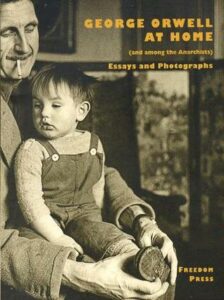
- George Orwell at Home (and among the Anarchists). Essayes and Photographs. (Freedom Press, 1998, 75 pages). See review by Raymond S. Solomon: Orwell among the anarchists (Freedom, April 16, 2019).
Goodreads.com: ‘Here for the first time is a full collection of the photographs by Vernon Richards showing George Orwell both at home and in unexpectedly informal settings, and which give an unusually intimate view of an extremely private man. These photographs are accompanied by a series of essays’:
Orwell the humanist. By Vernon Richards (p.9-13)
Orwell and Anarchism (1955). By Colin Ward (p.15-46)
Orwell and Anarchism (1998). By Nicolas Walter (p. 47-75).
Orwell: honesty, courage and faith in the ‘proles’. By Peter Sedgwick (Socialist Worker, No. 96, 9 November 1968; online at Marxists Internet Archive).
Review of The Collected Essays, Journalism and Letters of George Orwell (Penguin, 4 vols.). “Through his honesty and courage in an age of suffocating political illusion, through the strength of his basic commitment to the cause of the workers, Orwell indeed shares and perhaps helps to mould, the revolutionary future.”
Bøger /På dansk:
Toni Liversage: George Orwell: en introduktion (Gyldendal, 2000, 215 sider).
Raymond Williams: Orwell (Tiderne Skifter, 1984, 113 sider).
Nils Bredsdorff mfl. (red.): Hyldest til George Orwell (Roskilde Universitets Center, 1984, 152 sider).
Claus B. Storgaard: George Orwell – socialist, anarkist eller hvad…?: Om George Orwells politiske udvikling (Handelshøjskolen i Århus, 1979).
Artikler på dansk
Information
Tony Liversage: Forfatteren og det politiske engagement (Kronik, 25. juni 2003).
“Jeg mener, at man er nødt til at fortsætte den politiske kamp, på samme måde som en læge er nødt til at forsøge at redde livet hos en patient, der sandsynligvis står overfor at skulle dø”.
Modkraft
Aske Sparrebro: Tre guldkorn fra Orwell (21. januar 2017).
“Har du et minimum af politisk bevidsthed eller etisk egagement, er George Orwell et must-read. I anledning af årsdagen for den engelske forfatters alt for tidlige bortgang bringer vi her en kort introduktion til forfatterskabets lysere sider.”
Politiken
Michael Seidelin: Orwells liste (25. juni 2003).
“Men offentliggørelsen har igen skabt debat om Orwells politiske indsats i de sidste år af sit liv.”
På baggrund af bl.a. 3 artikler fra The Guardian:
- Fiachra Gibbons: Blacklisted writer says illness clouded Orwell’s judgement (June 24, 2003).
- John Ezard: Blair’s babe: Did love turn Orwell into a government stooge? (June 21, 2003).
- Among Orwell’s suspects (June 21, 2003). List of the author’s suspects.
- Se også denne artikel fra The Guardian: Stephen Bates: Odd clothes and unorthodox views – why MI5 spied on Orwell for a decade (September 4, 2007).
Politisk Revy
Tema: 1984 (nr.451, 29. december 1983, s.7-12).
Spanienskæmper med George Orwell (interview med Stafford Cattman), ved Allan Anarchos (nr.452, 20. januar 1984, s.18-20 + nr.453, 3. februar, s.21-22).
Socialistisk Arbejderavis
Andrew Stone: Orwells århundrede: fra 2003 til 1984 (nr.217, august 2003; online på Internet Archive).
“George Orwell var en af de mest indflydelsesrige forfattere i det tyvende århundrede. I hundredåret for hans fødsel kan diskussioner omkring hans mest berømte bog ‘1984’ stadig være yderst relevante.”
Socialistisk Information
Owen Beynton: Orwell mellem socialistiske løfter og truslen fra den totalitære stat (19. juni 2023).
“I sine to mest berømte romaner Kammerat Napoleon og 1984 kom George Orwell med en advarsel til sine læsere, der fortrinsvis bestod af folk på den engelske venstrefløj. Som socialist gennem hele sit liv advarede han mod faren fra den totalitære stat – en fare man burde tage i betragtning, hvis man ville sikre en mere lige og retfærdig fremtid for arbejderklassen.”
Articles in English
On the publishing of the novel 1984, see also our Timeline 8 June 1949.
Against the Current
Victor Pardo Lancina: Orwell in the maze of memory (No.148, September/October 2010).
On the history of Orwells book from the Spanish Civil War, Homage to Catalonia (1938).
Jane Slaughter: Remembering Spain’s Revolution (No.143, November/December 2009).
“Orwell’s portrait of revolutionary Spain gives us a glimpse of human beings’ revolutionary and egalitarian potential and their capacity for bravery. That is why, 70 years later, Homage to Catalonia is worth reading for the first time and again.”
Counterfire
Homage to Orwell (19 February 2013).
“Sean Ledwith looks at the ongoing debate concerning the legacy of a writer whose relationship with the left was always ambiguous.”
Critique
John Newsinger: Destroying the myth: George Orwell and Soviet communism (No.27, 1995, p.55-80). Only first page online.
“For Orwell, his socialist commitment necesarrily involved hostility to Soviet Communism.”
The Guardian
Stephen Bates: Odd clothes and unorthodox views – why MI5 spied on Orwell for a decade (4 September 2007).
“1984 author suspected of being a communist. Newly released files reveal Special Branch blunders.” See also Politiken above.
International Socialism
James Preece: The secrets of Nineteen Eighty-Four (Issue 163, Summer 2019, p.133-152). “This article attempts to address these critiques from the left by closely examining the context of Nineteen Eighty-Four and Orwell’s late political beliefs, before delving into a radical textual study of the novel itself to make clear the true significance of this important work.”
John Newsinger: Defusing George Orwell (Issue 143, Summer 2014). Review of Robert Colls, George Orwell: English Rebel (Oxford University Press, 2013).
“Now there is, without a doubt, a lot to be said about Orwell and Englishness, but what Colls does is use his exploration of the relationship as a way of domesticating Orwell, of diminishing his radicalism.” See also review by Francis Mulhern: Forever Orwell (New Left Review, Issue 87, Maj-June 2014).
John Newsinger: Orwell and the Spanish Revolution (Issue 62, Spring 1994, p.71-90).
“[Orwell] is the author of one of the most important celebrations of revolution in English literature, Homage to Catalonia. In this account of his experiences with the POUM (United Marxist Workers Party) militia in Spain, he makes clear his commitment to both working class struggle and to socialism, and at the same time his steadfast opposition to Stalinism and its apologists.”
John Molyneux: Animal Farm revisited (Issue 44, Autumn 1989, p.99-112).
“Two serious historical misrepresentations: 1: that Animal Farm and Orwell’s work as a whole can be rescued from the right wing and in some sense claimed for the socialist tradition is quite a popular one; 2: the years immediately following the revolution and in particular the civil war of 1918 to 1921.”
Peter Sedgwick: George Orwell: International Socialist?:, 1: The Development of Orwell’s Socialism (Issue 37, June-July 1969, p.28-34).
“A basic account of the development of George Orwell’s political beliefs, from the beginning of his literary vocation down to his death in January 1950.”
2. del udkom aldrig. / Second part apparently never published.
International Socialist Review
Lee Wengraf: The Orwell we never knew (Issue 32, November–December 2003).
“Orwell’s writing has come to epitomize lessons taught in schools everywhere: Resistance is impossible, and Orwell’s Big Brother–the Soviet Union – is the unavoidable result of fighting for a better society ”¦ But George Orwell had a different vision than these conservatives, and for that, his life and works have something to offer the left today. Orwell became a self-described socialist as a result of lessons learned early in life”.
Jacobin: Reason in Revolt
Gustav Jönsson: George Orwell was a temperamental conservative and ideological radical (22 October 2023).
Review of D.J. Taylor, Orwell: The New Life (Pegasus, 2023, 608 p.). “George Orwell managed to combine a conservative temperament with a socialist rejection of oppression. A lively new biography of the English radical explains how he held these contradictions together.”
Luke Savage: How the Right gets George Orwell wrong (9 March 2023).
“Free-market zealots like Friedrich Hayek and others on the Right love claiming George Orwell as their own. That requires ignoring Orwell’s entire body of work defending democratic socialism — and denouncing the right-wing worldview of figures like Hayek.”
Jess Cotton: Rebecca Solnit’s call for roses rings hollow (22 April 2022). Review of Rebacca Solnit, Orwell’s Roses (Granta, 2021, 310 p.).
“Socialists use the slogan ‘bread and roses’ to emphasize the equal importance of pleasure and material security. In Orwell’s Roses, Rebecca Solnit attempts to renew this rallying cry, but the result is a hymn to liberalism and a hollow vision of politics.”
Benjamin Schacht: Keeping George Orwell on the Left (7 February 2021).
“The term ‘Orwellian’ has long been a vacuous cliché, and now even allies of Trump are making use of it to deride their opponents. But George Orwell, a self-described democratic socialist, always belonged on the Left.”
Samuel Farber: George Orwell and the Proles (21 August 2018).
“Though his pessimism about the working class ebbed and flowed throughout his life, George Orwell ultimately saw workers as the only force that could build an egalitarian, socialist society.”
David N. Smith: The political George Orwell (25 June 2018).
“George Orwell was born 115 years ago today. He is often remembered as a paragon of lucidity and truth-telling. But he was also deeply serious about socialist politics.”
Jared Spears: Spain through Orwell’s eyes (1 May 2017).
“Eighty years ago, Barcelona’s calamitous May Days sealed the fate of a worker-led social revolution. George Orwell was there to bear witness.”
Scott Poole: Reclaiming comrade Orwell (29 October, 2013).
“George Orwell has become a mirror into which any political position can look into and see itself staring back. But make no mistake – Orwell belongs to the Left.”
Labour History Review
John Newsinger: The American connection: George Orwell, ‘literary Trotskyism’ and the New York intellectuals (No.1, 1999). Only first page online.
Links: International Journal of Socialist Renewal
Alex Miller: Orwell’s Animal Farm and Nineteen Eighty-Four: Critiques of Stalinism ‘from the left’? (April 2008).
“This essay is the result of a re-reading of George Orwell’s two most famous novels. Both Animal Farm and Nineteen Eighty-Four have acquired the status of textbooks, and are routinely used in schools to demonstrate to children the inherent dangers of social revolution. It is time for a reappraisal.”
Lobster
John Newsinger: George Orwell and the IRD (Issue 38, 1999, p.9-12). Artiklen er p.t. ikke online uden log-in (Foreign Office’s hemmelige propagandaafdeling: Information Research Department = Foreign Office’s hemmelige propagandaafdeling).
Robin Ramsay: The influence of intelligent services on the British left (1996).
En bredere baggrundsartikel, som ikke omhandler Orwell.
See: 4 September 2007 releases: Communists and suspected Communists.
Logos: A Journal of Modern Society & Culture
Ian Williams: Orwell and the British left (Vol.9, No.1, 2010; online at Internet Archive).
“This chapter briefly traces Orwell’s political development in the context of the British socialist politics of his era and shows how at an early stage he defined himself specifically as a ‘democratic socialist’, thus intending to distance himself, and indeed socialism itself, from the various totalitarian tendencies that claimed, spuriously in his view, to be socialist.”
Ian Williams: Afterlife of an Atheist (Vol.6, Issue 1-2, Winter/Spring 2007; online at Internet Archive). Review of John Rodden, Scenes from an Afterlife (Intercollegiate Studies Institute, 2003, 350 p.).
“Rodden’s examples show how the advertising industry, whose copywriters surely represent one of the most shamelessly Ingsoc professions, lying for money, can devalue some of the key concepts of Orwell’s work.”
London Review of Books
Terry Eagleton: Reach-me-down romantic (Vol.25, No.12, 19 June 2003).
Review of three books about Orwell by Gordon Bowker, D.J. Taylor and Scott Lucas.
New Interventions
Paul Flewers: ‘‘I know how, but I don’t know why’: George Orwell’s conception of totalitarianism.
“An essay originally published by New Interventions as a pamphlet [2000, 35 p.], then published as a chapter in Paul Flewers (ed), George Orwell: Enigmatic Socialist (Socialist Platform, 2005, p.63-94; online at Academia.edu).” Review by John Newsinger (Revolutionary History, Vol.7, No.3, 2000, p.312-313).
John Newsinger: George Orwell and the revolutionary left (No.4, 1998, p.9-19).
“What will be argued here is that throughout his political life, Orwell maintained a dialouge with the revolutionary left …”
New Left Review
Francis Mulhern: Forever Orwell (Issue 87, Maj-June 2014).
Review of Robert Colls, George Orwell: English Rebel (Oxford University Press, 2013, 330 p.). “The protean cult of Eric Blair finds its latest iteration.”
New Statesman
Scott Lucas: The socialist fallacy (29 May 2000).
“Scott Lucas argues that Orwell’s status as the secular saint of socialism is built on a myth.”
New York Review of Books
Simon Leys: The intimate Orwell (Vol.58, No.10, June 9, 2011). Review of Peter Davison (ed.), Diaries by George Orwell (London, Harvill Secker, 2009) + Peter Davison (ed.), George Orwell: A Life in Letters (London, Harvill Secker, 2010)
Timothy Garton Ash: Orwell’s List (Vol.50, No.14, September 25, 2003).
“So there it was at last, the copy of George Orwell’s notorious list of ‘crypto-communists’ that went into the files of a semisecret department of the Foreign Office on May 4, 1949. It lay before me in a buff folder on the office table of a senior Foreign Office archivist. Despite all the controversy around it, no unofficial person had been allowed to see the list for more than fifty-four years … So there is the text. What is the context?”
Reds – Die Roten
Paul O’Flinn: Animal Farm, 1984 and socialist revolution. Chapter 2 in: Paul O’Flinn: Them and us in literature (London, Pluto Press, 1975, p.14-20).
“So what are we to make of this socialist who for the past generation has supplied the Right with a whole armoury of blunt instruments with which to attack the Left? More important, what’s useful in Orwell’s ideas and Orwell’s warnings for the present generation of socialists?”
Socialism Today
Peter Taaffe: Revisiting the Road to Wigan Pier (Issue 137, April 2010).
“It was 75 years ago that the publisher Victor Gollancz commissioned George Orwell to write a book about the effects of mass unemployment in the depression-era north of England. Peter Taaffe revisits one of Orwell’s less familiar, but now again very relevant, signature works.”
The Socialist
Michael Calderbank: George Orwell: Facing up to the contradictions (28 June 2003).
“Orwell was responding to debates within the left, about how to keep the idea of a genuine socialist transformation alive.” And scroll down the article to: Books that inspired socialists: Homage to Catalonia (30 June 2003)
Socialist Resistance
Dave Kellaway: Orwell, anti-colonialist, anti-fascist … blue Labour? (28 January 2020).
“Orwell’s greatest contribution is his brilliant dissection of both fascist and Stalinist totalitarian regimes through Animal Farm and 1984 along with Homage to Catalonia on his experiences in the Spanish Civil War. He was one of the very few writers who was ready to openly criticise the Stalinist regime in Moscow in the 1930s or 40s apart from very small Trotskyist groups.”
Socialist Review
John Newsinger: Nineteen Eighty-Four and all that (Issue 454, February 2020)
“Seventy years after his death, George Orwell has been canonised by the literary establishment as a liberal critic of totalitarianism. John Newsinger argues that his life and his work show him to be a harsh a critic of capitalism, and a staunch supporter of the struggles of the ‘common people’.”
Orwell and the struggle for socialism (Issue 434, April 2018).
“John Newsinger, author of a new book on George Orwell’s politics [Hope Lies in the Proles: George Orwell and the Left, Pluto Press, 2018], looks at how his stance as an independent socialist led him to great radicalism and terrible betrayal.”
Special Feature: Are we living in an Orwellian nightmare? (Issue 276, July-August 2003).
“George Orwell was one of the most influential writers of the 20th century. On the hundredth anniversary of his birth we examine the controversy around his work and his legacy for today”:
- George Orwell, 1903-1950 – The facts of Orwell’s life.
- Andrew Stone: From 2003 to 1984: An assessment of Orwell’s most famous novel.
- Paul Foot: The Cold War controversy: Why does much of the left reject Orwell?
- Andy Durgan: No Pasaran: Orwell and revolutionary Spain.
- John Newsinger: Orwell centenary: The biographies.
- Gareth Jenkins: Culture, class and communism: Orwell has become part of the everyday culture he so powerfully described.
Socialist Worker (UK)
Orwell was heading leftward along the Road to Wigan Pier (Issue 2544, 7 March 2017).
“On the 80th anniversary of George Orwell’s classic The Road to Wigan Pier, Simon Basketter looks at his account of working class life and the left.”
George Orwell’s road to socialism (Issue 2336, 19 January 2013).
“As BBC Radio Four and Penguin books launch a celebration of George Orwell, Simon Basketter looks at the politics of one of the finest writers on the left.” With links to three ohther articles.
The Road to Wigan Pier: a searing account of 1930s poverty (Issue 2294, 17 March 2012).
“Simon Basketter looks back at George Orwell’s classic The Road To Wigan Pier, published 75 years ago.”
Socialist Worker (US)
Lee Wengraf: The legacy of George Orwell: A wittness to revolution and counterrevolution (July 4, 2003).
“The life and writing of George Orwell on the 100th anniversary of his birth.”
Solidarity (UK)
Sean Matgamna: George Orwell and today’s left: The man who told unpalatable truths (3/33, 26 June 2003).
“When he was alive, Orwell, who died in 1950, was regarded by the dominant forces ‘on the left’ of the 1930s and 40s as a ‘right-winger’, a crank, an ‘anti-Soviet renegade’, an agent or a ‘dupe’ of fascism, and an all-round enemy.”
Chris Hickey: Documenting the Spanish Civil War (3/33, 26 June 2003).
“Born 100 years ago and dying in 1950, it is difficult to think of an English writer in the last 100 years who has aroused stronger feelings and been the subject of more political dispute than George Orwell. Yet the fame and controversy that surround Orwell’s name essentially derive from just two books, Animal Farm and Nineteen Eighty-Four, produced in the last 6 or 7 years of his life.”
Chris Hickey: George Orwell: Imagining the totalitarians (3/34, 10 July 2003).
“Written on the cusp of the Cold War Animal Farm and Nineteen Eighty-Four launched Orwell’s international reputation and made him the most politically fought over English writer of the 20th century.”
Weekly Worker
Gareth Evans: Paradox of an anti-Stalinist (Issue 847, January 6, 2011). Review of Philip Bounds, Orwell and Marxism: the political and cultural thinking of George Orwell (IB Tauris Publications, 2009).
“[This book] is a comprehensively researched piece of work. As a result, it is a valuable asset for anyone wishing to get to grips with the politics of George Orwell and a useful tool for assessing those issues prominent within the communist movement throughout his most prolific and productive years.”
What Next? Marxist Discussion Journal
Ed George: Orwell and ‘The English Genius’ (No.28, 2004).
“fundamental to understanding the nature of the continuity in Orwell’s thought is comprehending his interpretation and reception of British (or English) nationalism.”
World Socialist Web Site
Richard Mynick: A comment: Revisiting George Orwell’s Nineteen Eighty-Four in 2010 (12 June 2010).
“George Orwell’s Nineteen Eighty-Four, one of the most influential English-language novels of the mid-twentieth century, was published in 1949. The term ‘Orwellian’ has long conjured up a vision of the prototypical ‘totalitarian state’.” See also: Letters on ‘Revisiting George Orwell’s Nineteen Eighty-Four in 2010’ (19 June 2010)
Andy Reiss: Animal Farm: a new version on US television (12 November 1999).
“The US cable network TNT recently broadcast a well-publicised remake of George Orwell’s classic, Animal Farm, directed by John Stevens.”
Fred Mazelis: George Orwell and the British Foreign Office (9 September 1998).
“When a new 20-volume edition of the collected works of George Orwell appeared about two months ago, included among the books, essays and voluminous correspondence of the famed British writer and journalist who died nearly 50 years ago was a list of some 130 prominent figures he compiled in 1949.”
YouTube.com
- Video: George Orwell and Socialism (1:19:21 min.). Speech by John Newsinger at Marxism 2014, London.
- Video: LITERATURE – George Orwell (YouTube.com; 13:46 min)
Orwell Sites
George Orwell (1903-1950): a web guide to George Orwell from Literaryhistory.com
“The most comprehensive and authoritative bibliography for full-text literary criticism on the internet.”
George Orwell (1903-1950) (Project Gutenberg of Australia: a treasure-trove of literature)
“Read and/or download these George Orwell works”. Online versions of most of Orwell’s novels.
- Section: Fifty Orwell Essays (1931-1949)
George Orwell: Complete works, Biography, Quotes, Essays = George-Orwell.org
Fiction – Non-Fiction – Essayes.
Non-Fiction:
George Orwell (1903-1950)
Section Biography (Orwell Chronology; The Road to Wigan Pier, 1937; Orwell’s photo gallery; Orwell’s grave (photos)
Section Library: George Orwell’s novels (‘his 9 basic works’), essays/articles, reviews, poems and other writers.
The Orwell Society
The official society for the author Eric Arthur Blair known as George Orwell.
George Orwell (1903-1950) (Marxists Internet Archive). Biography & few works.
















